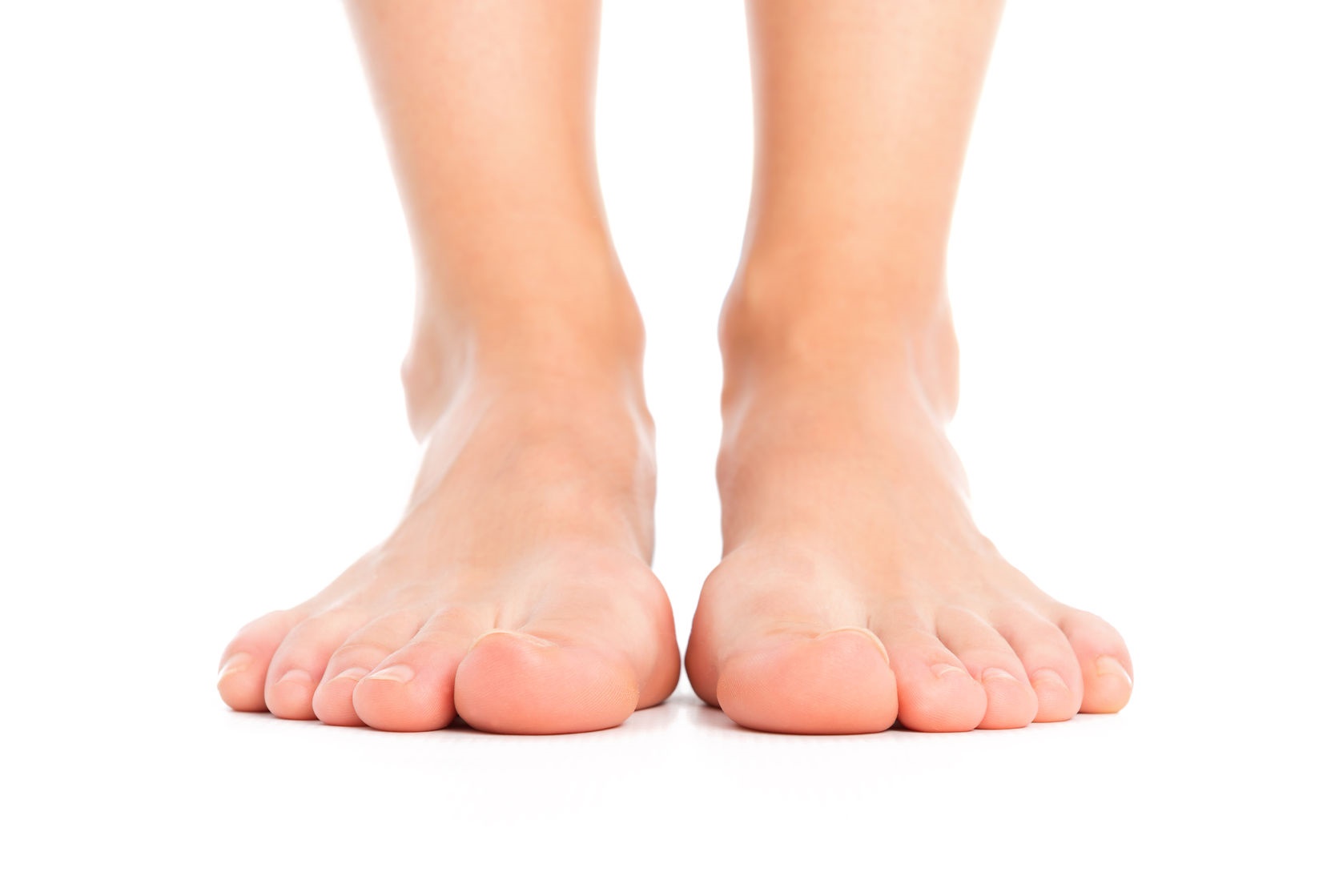
Normally, if you were to dip your foot in water and take a couple of steps, you would see that your footprint consists of your toes, the ball of your foot, your heel, and a thin area on the outside part of your foot. This is because the foot should have a natural arch that does not make contact with the ground. Flatfoot is a deformity in which the entire foot makes contact with the ground when standing or walking. Flatfoot might not cause any pain, but it could lead to inflexibility, swelling, and discomfort.
What causes flatfoot?
- Abnormal arch development during childhood when learning to walk and stand
- Aging, weight gain, or arthritis that causes the arch to collapse
- Foot or ankle injury
- Heredity—your parents passed it to you!
How is flatfoot corrected?
Most cases of flatfoot are not accompanied by pain. On days that your feet feel stiffer or more uncomfortable than others, you can treat your flatfoot by icing the area, resting, or taking some over-the-counter anti-inflammatory medications. However, the following are methods that might correct the deformity altogether:
- Participating in physical therapy to strengthen muscles and improve foot flexibility
- Wearing orthotics that support your arch and relieve some of the pressure
- Undergoing surgery to transfer a tendon from another part of the body to the arch
- Undergoing surgery to remove tissue or bone that is irritating the arch or the heel
As mentioned above, most people with flatfoot are able to lead completely normal, pain-free lives. However, if your flatfoot involves injury to the tibialis posterior, your condition could become disabling. At the first sign of arch pain or a collapsing arch, you should contact a board-certified podiatrist like Dr. Ryan L. D’Amico of Syracuse Podiatry. Dr. D’Amico specializes in foot and ankle surgery and he can provide a solution for even the most progressive forms of flatfoot. Dr. D’Amico has experience treating other conditions associated with arch problems, including plantar fasciitis, plantar fibromas, and hammertoe. If you want to see an end to some of your pedal ailments, then you need to contact us or call our Fayetteville office at (315) 446-3668 today!
